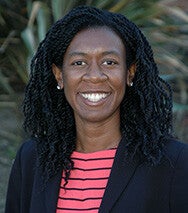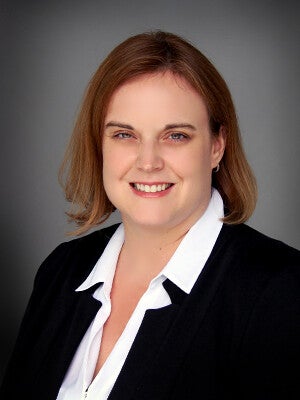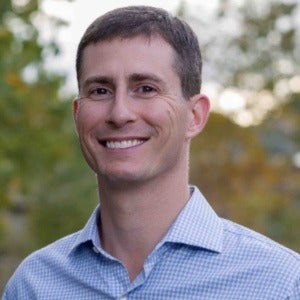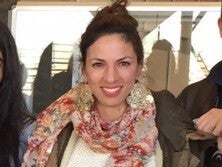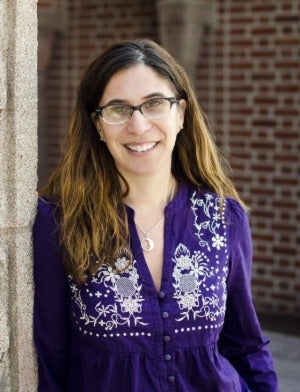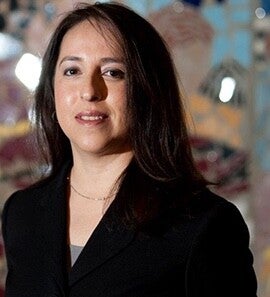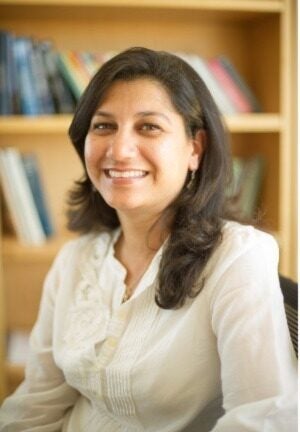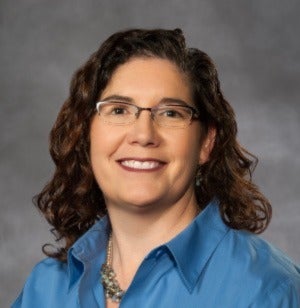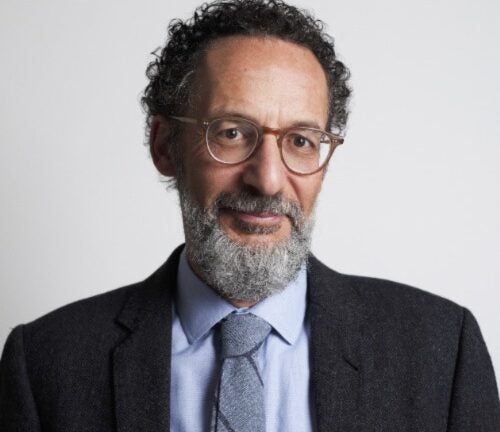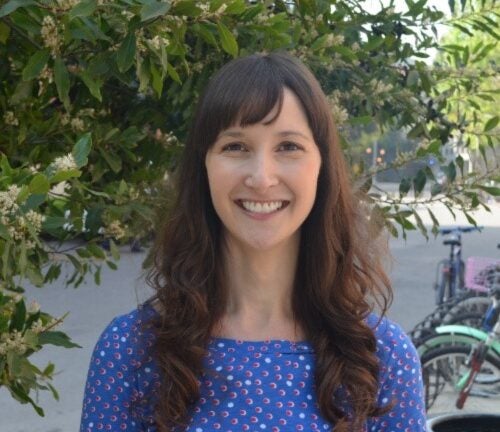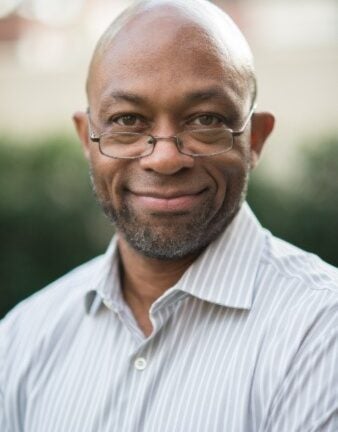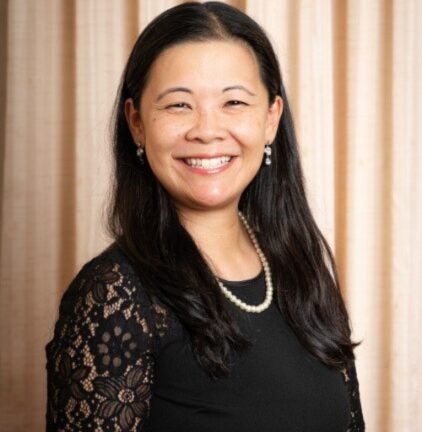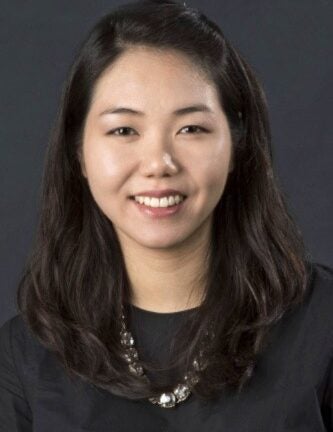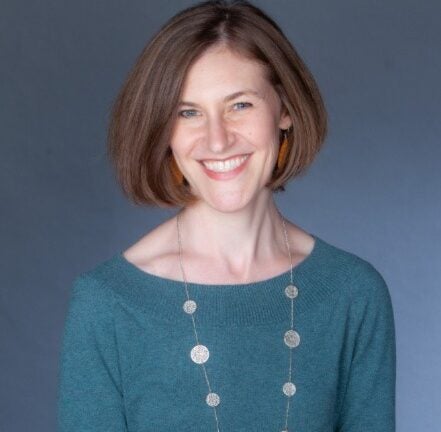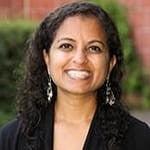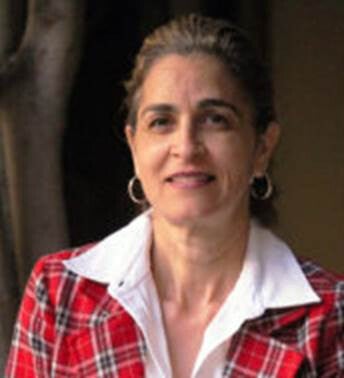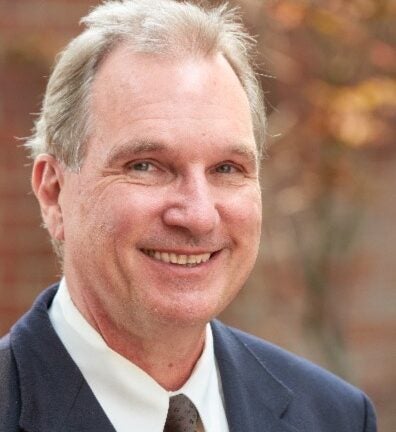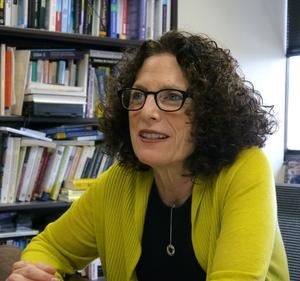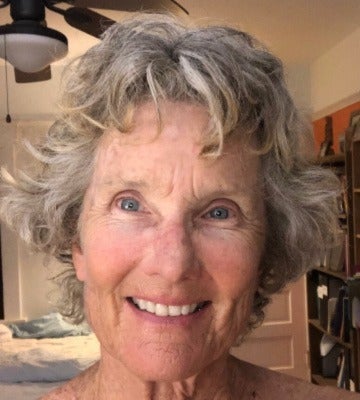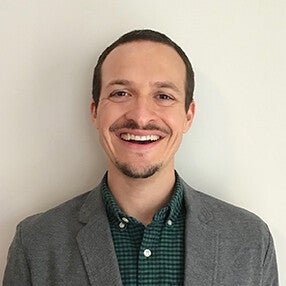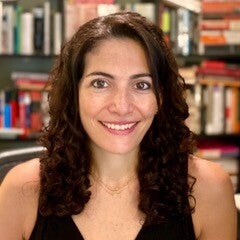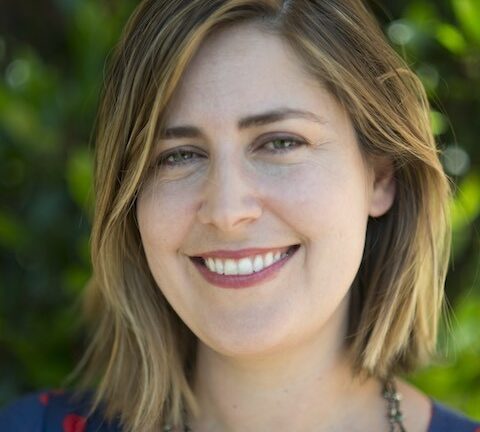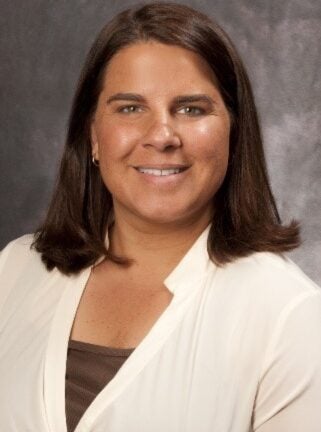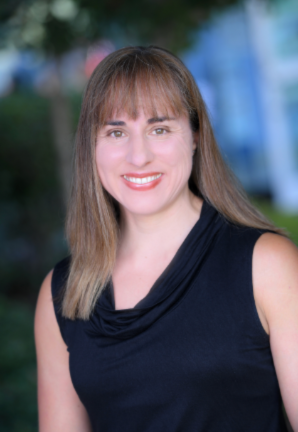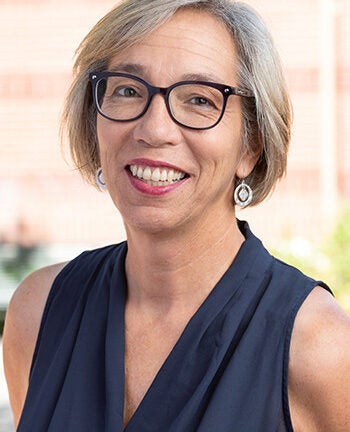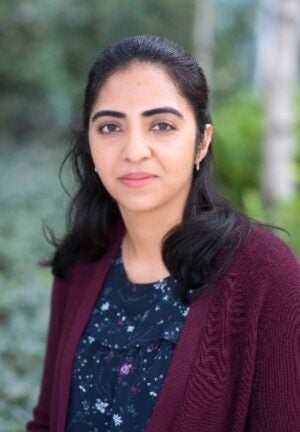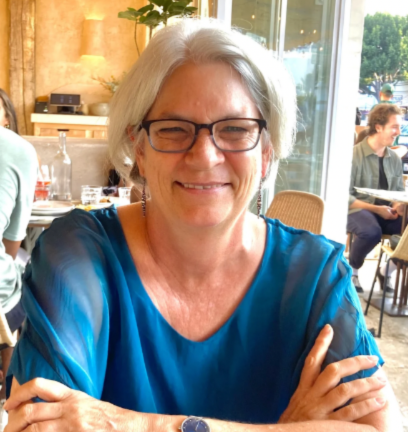Meet the faculty members of the USC Center for the Changing Family.
Assistant Professor of Pediatrics at the Keck School of Medicine of the University of Southern California and Children’s Hospital Los Angeles
asanderson@chla.usc.edu
Dr. Anderson received her bachelor’s degree in Human Biology at Stanford University, and her MD at Harvard Medical School. After her residency at Baylor, she completed public health degrees in the Commonwealth Fund/Harvard University Fellowship in Minority Health Policy and the Robert Wood Johnson Clinical Scholars Program at UCLA. Dr. Anderson’s current research explores the origins of health disparities in the social environments of early childhood. Her work is particularly focused on the impact of early school readiness and racial socialization on later academic achievement and related health outcomes. She has conducted a number of qualitative assessments of early childhood educators, pediatricians, and minority parents with the goal of developing a culturally appropriate way to enhance a child’s education, health, and resilience in a multi-ethnic society.
Assistant Professor in the Department of Preventive Medicine in the Keck School of Medicine
bastain@usc.edu
Dr. Bastain is the principal investigator of the NIMHD/NIEHS-supported MADRES Center for Environmental Health Disparities and of the USC Environmental influences on Child Health Outcomes Program site, funded by the NIH Office of the Director. Dr. Bastain’s research interests include understanding the role of environmental exposures and social stress in pregnancy and early life on children’s physical health including asthma and obesity risk as well as their impacts on neurodevelopment. Additionally, she has funded work on investigating the prenatal period as a window of susceptibility for stress and environmental exposures on maternal depression in the four years after delivery. Her recent work has focused on the development of a large pregnancy cohort study of predominantly Latinx/Hispanic woman-child dyads from under-resourced communities in urban Los Angeles, with an ultimate goal of understanding and preventing disparities in health outcomes and reducing the burden of environmental exposures and psychosocial stress in these communities.
Price Family Chair in Social Innovation and Professor at the USC Price School of Public Policy, with courtesy appointments at the Marshall School of Business and Department of Sociology
cbeckman@usc.edu
Dr. Beckman’s new book, Dreams of the Overworked: Living, Working and Parenting in the Digital Age, co-authored with Melissa Mazmanian and published by Stanford Press, is an ethnographic account of working parents efforts to be Ideal Workers, Perfect Parents and Ultimate Bodies. The book highlights how technology intensifies these myths of perfection, celebrates the people who actually do the work of scaffolding the dreams of those around them, and reveals the hidden sources of gender inequality in everyday life. She is a native Californian and received her undergraduate and graduate degrees from Stanford University.
Economist at the Center for Economic and Social Research at the University of Southern California
bennettd@usc.edu
Dr. Bennett studies economic development and global health in Africa and South Asia. Much of Dr. Bennett’s work examines the way that information affects individual health care decisions and the operation of health care markets. He also focuses on the influence of mental health on productivity and economic decision-making. Dr. Bennett’s work involves primary data collection and uses both experimental and quasi-experimental methods. He received his Ph.D. in 2008 from Brown University and spent eight years on the faculty at the University of Chicago.
Associate Professor of Research at the USC Davis School of Gerontology and Director of the USC Family Caregiver Support Center
benton@usc.edu
Dr. Benton is a clinical psychologist who specializes in gerontology. She is a former commissioner on the state of CA California Commission on Aging. She currently serves as the Chair of the state CA Caregiver Task Force. She has worked in the field of aging for over 30 years. She has presented her research and clinical work on elder abuse, minority aging and caregiving locally, nationally and internationally. She is committed to promoting collaborative partnerships and policies that enhance services for families caring for older adults.
Assistant Professor at the USC Department of Population and Public Health Sciences
rceasar@usc.edu
Dr. Ceasar is a medical anthropologist. Her research uses mixed quantitative and qualitative methods to understand maternal cannabis use among pregnant people, maternal health stakeholders, and cannabis retailers. Rachel is also the Qualitative Consultant at CTSI’s Biostatistics, Epidemiology and Research Design where she provides qualitative research expertise on faculty, clinician, and student projects across USC. She has given numerous talks on bringing qualitative methods to epidemiologists, industry leaders, and healthcare entrepreneurs, including at TEDxCrenshaw, South by Southwest (SXSW), and Headspace as well as at the USC Iovine and Young Academy and the Marshall School of Business.
Associate Professor in the Department of Children, Youth, and Families at the Suzanne Dworak-Peck School of Social Work
jcederba@usc.edu
Dr. Cederbaum has worked clinically with child welfare involved youth, with pregnant and parenting teens, and with HIV infected families. During her MPH (2007) and PhD in Social Welfare (2009) studies at the University of Pennsylvania, Julie’s work focused on primary and secondary HIV prevention. As clinical social worker Julie’s expertise lies in the design and utilization of mixed methods in research, particularly on the topics of family process and reproductive and behavioral health risk prevention with vulnerable populations. The goal of her work is reducing negative adverse outcomes in individuals and families who have experienced trauma.
Associate Professor in the School of Social Work at the University of Southern California
alicecep@usc.edu
Dr. Cepeda’s received her PhD in Sociology from the City University of New York, Graduate Center. Her research examines the complex of social determinants that influence the development of drug abuse health disparities across generations of Mexican-origin populations. Dr. Cepeda has been a recipient of several National Institutes of Health federal grants. Her most recent National Institute on Drug Abuse funded study is following up a cohort of Mexican American young adult females and documenting trajectories of intimate partner violence since adolescence.
Senior Economist and the Director of Program on Children and Families at the Center for Economic and Social Research at USC
adatar@usc.edu
Dr. Datar’s research broadly focuses on the role of family-, neighborhood-, social-, economic-, and policy-contextual factors on the health and well-being of children and families, particularly how these contextual factors in influencing childhood obesity and related health behaviors. She is leading two large natural experiment studies that examine how changes in built- and social-environments in neighborhoods influence diet, physical activity, and obesity among children and families. She has received several grants from federal agencies and private foundations, including the National Institutes of Health, U.S. Department of Agriculture, U.S. Department of Health and Human Services, and the Robert Wood Johnson Foundation. Datar received an MA in Economics from the Delhi School of Economics and a Ph.D. in Policy Analysis from the Pardee-RAND Graduate School.
Kayla de la Haye
Kayla de la Haye, PhD, is an Associate Professor of Population and Public Health Sciences at the University of Southern California’s Keck School of Medicine. She works to promote health and prevent disease by applying social network analysis and systems science to key public health issues. Her research focuses on family and community social networks to promote healthy eating, nutrition security, and prevent non-communicable diseases like obesity. She also explores the role of social networks in how families, teams, and coalitions solve complex problems. She serves on the Board of Directors of the International Network of Social Network Analysis (INSNA), and in 2018, she received the INSNA Freeman Award for significant contributions to the study of social structure. She holds a PhD in psychology from the University of Adelaide.
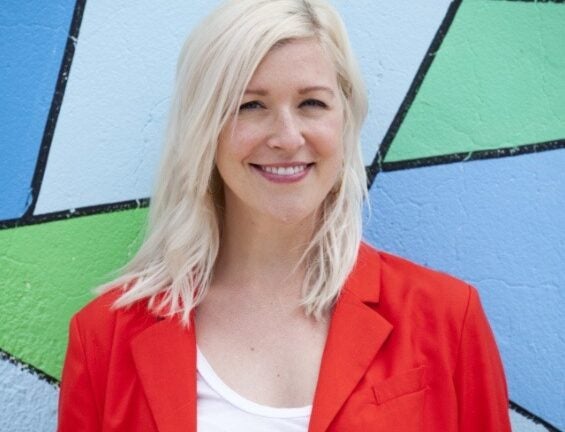
Associate Professor of Preventive Medicine and Psychology at the University of Southern California
dunton@usc.edu
Dr. Dunton´s research examines the etiology of health behaviors related to chronic disease risk in children and adults, with a focus on physical activity and nutrition. Dr. Dunton directs the USC REACH (Real-Time Eating Activity and Children’s Health) lab, whose goals are to develop, test, and apply real-time data capture methodologies, including EMA and wearable sensors, to better understand the effects of time-varying psychological, social, and environmental factors on eating and physical activity episodes. She is the PI on six large studies funded by the National Institutes of Health and the American Cancer Society, author of over 100 peer-reviewed publications, and past Chair of the American Public Health Association Physical Activity Section. She is also a member of the National Academy of Sciences Panel on Physical Activity Surveillance.
Associate Professor and Director of Pediatric Research in the Division of Biokinesiology and Physical Therapy at the University of Southern California
stacey.dusing@pt.usc.edu
Dr. Dusing is particularly interested in the impact of developmental disability on family and evaluating the efficacy of early intervention to reduce the severity of disabilities. As the director of the Motor Development Lab, Dusing trains interdisciplinary students at all levels to evaluate the complex relationship between motor control and motor development, cognition, language, social emotional skills, and family needs. Her research has been funded by the National Institutes of Health, Maternal and Child Health Bureau, The US Department of Education, American Physical Therapy Association, Academy of Pediatric Physical Therapy, and the Foundation for Physical Therapy Research. Her passion for research and translating research to practice has been recognized earning her the Stephen Haley Outstanding Research Award in 2017 and the Knowledge Translation Lectureship in 2019 from the Academy of Pediatric Physical Therapy.
Research Assistant Professor of Pediatrics in the Division of Neonatology and the Fetal and Neonatal Institute at Children’s Hospital Los Angeles (CHLA), USC Keck School of Medicine
gongc@usc.edu
Supported by the Teresa and Byron Pollitt Family Chair in Fetal & Neonatal Medicine, Dr. Gong is a core faculty team member developing fetal and neonatal health economics and outcomes research at Children’s Hospital Los Angeles. Her research primarily focuses on the costs and cost-effectiveness of therapies and policies to estimate whether changes in clinical treatment, guidelines, or policies represent high-value interventions that can optimize the efficiency of limited healthcare resources to yield the best treatment outcomes possible.
Professor of Pediatrics in the Keck School of Medicine at the University of Southern California, Program Director for Diabetes and Obesity at The Saban Research Institute, Dr Robert C and Veronica Atkins Endowed Chair in Childhood Obesity and Diabetes, and Co-Director of the USC Diabetes and Obesity Research Institute
goran@usc.edu
Dr Goran received his Ph.D. from the University of Manchester, UK (1986). His research focuses on the causes and consequences of childhood obesity, investigating the metabolic factors linking obesity to increased disease risk during growth and development and using this information as a basis for developing new clinical, behavioral and community approaches for prevention, treatment and risk reduction. He is also especially interested in ethnic disparities in obesity and obesity related diseases, e.g. the effects of dietary sugar on obesity and metabolic diseases among Latinos. His research has been continuously funded by NIH and other Foundations for the past 25 years during which he has raised almost $50m in funding to support this work.
Associate Professor of Sociology at the University of Southern California
hook@usc.edu
Dr. Hook’s research areas include gender-work-family, family demography, inequality, social policy, and comparative sociology. Hook focuses on how social contexts, particularly social policies and opportunities in the labor market, impact individuals and families. Her recent work examines the influence of country context on women’s employment, fathers’ time with children, and the gendered division of household labor, as well as the impacts of state policy and practice on foster children’s outcomes and the economic vulnerability of parents involved with the child welfare system. Her research has appeared in journals including the American Sociological Review, the American Journal of Sociology, and the European Sociological Review. She is coauthor of Gendered Tradeoffs: Family, Social Policy, and Economic Inequality in Twenty-One Countries (Russell Sage 2009).
Associate Professor of Psychology and American Studies and Ethnicity at the University of Southern California
hueyjr@usc.edu
Dr. Huey’s research focuses on (1) psychotherapy effects with children and families, (2) ethnic disparities in mental health, (3) ethnicity and cultural adaptation in psychotherapy, and (4) interventions in criminal justice settings. His work has been funded by the National Institute of Mental Health and the American Foundation for Suicide Prevention.
Associate Professor of Clinical Pediatrics & Preventive Medicine at Children’s Hospital Los Angeles, Keck School of Medicine of USC
jojavier@chla.usc.edu
Dr. Javier received a BS from UCLA and MD from UC Irvine. She completed residency training in pediatrics and a postdoctoral fellowship in general academic pediatrics at Stanford University. She is a pediatrician scientist whose research has focused on optimizing the well-being of minority and immigrant youth. Her area of research has focused on decreasing mental health stigma and preventing suicide and depression among Filipino youth ages 6-12 years old by using community-partnered participatory research to implement and evaluate evidence-based parenting interventions. Her recent work expanded to providing and evaluating these interventions offered online statewide in California to all communities from birth to age 6. Her work has been funded by the National Institutes of Health NCATS KL2 and NICHD K23 awards, American Academy of Pediatrics CATCH program, the SC CTSI, and the Robert Wood Johnson Foundation Clinical Scholars Program. She currently serves as an Executive Committee Member on the American Academy of Pediatrics (AAP) Council on Community Pediatrics, Co-chair of the Society for Pediatric Research Advocacy Committee, and a member of Pediatric Policy Council. Website: filipinofamilyhealth.com
Assistant Professor in the USC Suzanne Dworak-Peck School of Social Work
bkelizak@usc.edu
Elizabeth’s research focuses on bridging the research-practice gap in service delivery models to address the mental, emotional, and behavioral (MEB) health needs of youth in and at-risk for being involved in the juvenile justice system. Specifically, she is committed to research that seeks to reduce racial/ethnic disproportionality and disparities endemic to the juvenile justice system. Her research covers three focus areas: 1) understanding the development of both healthy and problematic behaviors in adolescence; 2) identifying service needs of youth in school and justice systems; and 3) identifying and testing effective strategies to improve services that promote positive development among youth at-risk for or in the juvenile justice system. Together, her research seeks to address MEB health inequity experienced primarily by youth of color over the life course through the use of evidence-based practice. Elizabeth received her PhD from the University of Washington, Seattle, and her MSW from the University of Michigan, Ann Arbor.
Assistant Professor of Research
kretch@usc.edu
Dr. Kretch is a physical therapist and developmental psychologist. Her research focuses on perceptual-motor skills and processes of developmental change in infants with typical and atypical motor development, including those with or at risk for neurodevelopmental conditions like cerebral palsy. She has a special interest in the effect of infants’ motor skills on caregiver-infant interaction. The overall goal of her research is to promote exploration, learning, social interaction, and global development in children with physical disabilities.
Associate Professor of Clinical Pediatrics and Preventive Medicine, Keck School of Medicine of USC
Dr. Lakshmanan focuses on addressing disparities in health care delivery in the field of perinatal-neonatal medicine. After she received her MD from the Keck School of Medicine at USC, she completed a pediatric and a chief residency at Children’s Hospital Los Angeles, and then entered the Harvard-wide Pediatric Health Services Research fellowship, which provided a highly structured mentorship program and a Masters in Public Health degree from the Harvard School of Public Health. This complemented her clinical training in the Harvard Neonatal Perinatal Medicine Fellowship program. Dr. Lakshmanan was recruited to the University of Southern California (USC) Keck School of Medicine and Children’s Hospital Los Angeles, Fetal and Neonatal Institute, where she is an Assistant Professor of Clinical Pediatrics and Preventive Medicine. In 2014, she was appointed the Section Head of Epidemiology and Outcomes. She was awarded four intramural grants in fellowship and since becoming faculty, has also received the Saban Research Institute Research Career Development Award, the Confidence Foundation grant and received the Young Investigator Award from the Lucile Packard Foundation. Most recently, she was awarded the Mentored Career Development award from the USC CTSI (KL2) to complete work on “Addressing Disparities after NICU Discharge using Patient Navigation.” She hopes to lead research efforts that identify interventions to empower families to care for high-risk infants that both influence health policy and clinical practice.
Chief Scientific Officer and Director of the Saban Research Institute at Children’s Hospital Los Angeles
Dr.Levitt is a developmental neuroscientist pursuing basic research studies of circuit development and maturation mediating social, emotional and cognitive development, and the impact of early adversity on metabolic allostasis. Human research studies examine brain, behavioral and psychophysiologic development of infants who are at risk for experiencing toxic stress due to early adversity. The research group also examines factors that may build resilience. There are ongoing studies of the early identification of risk for autism spectrum disorder (ASD), and the impact of co-occurring medical disturbances on the quality of life for children with ASD. The team works with many community organizations to develop best practices for research studies to engage underrepresented families. Levitt has spoken in the U.S. and Canada to policy makers, business leaders and service providers about the powerful influence of early experiences on lifespan physical and mental health and quality of life. Levitt received his PhD in neuroscience from the University of California, San Diego, is an elected member of the National Academy of Medicine and has served as a member of the National Advisory Council for Mental Health at NIH. He currently sits on the governing board of the California Institute for Regenerative Medicine, serves as editor-in-chief of Mind, Brain and Education journal, and is a science mentor on Frontiers For Young Minds journal.
Program Manager at USC Secure Old Age Lab
anatloui@usc.edu
Dr. Louis is a committed and passionate advocate for older adults, persons with disability and their family members. She is the program manager at USC Secure Old Age Lab an interdisciplinary research addresses innovations in elder abuse response, health care delivery systems, and various promising interventions that enhance safety, independence, and autonomy for older adults. Dr. Louis was appointed to and served The California Task Force on Family Caregiving to address the challenges encountered by California’s family caregivers and provide recommendations for legislature. As the former Director of Program Services at the City AAA, Dr. Louis oversaw the Family Caregiver Support Program. At the Alzheimer’s Association, she launched the first Family Connections Program to provide care management, education and outreach programs for family members. At the Stroke Association of Southern California, Dr. Louis developed and led several programs including “Strike Out Stroke” community education in collaboration with hospitals across LA County, Stroke Activity programs and Caregiver support groups just to name a few.
Assistant Professor of Medicine and Psychology (secondary appointment)
shanluo@usc.edu
Dr. Luo’s research program seeks to understand brain, endocrine and behavioral factors contributing to obesity development. She has two major lines of research program: (1) brain-endocrine mechanisms of food decision-making in children and adolescents; (2) early life risk factors (i.e., in utero environment, family and community environment) to obesity development through team science and big data approaches.
Judge Edward J. and Ruey L. Guirado Chair in Law and Psychology at the University of Southern California
tlyon@law.usc.edu
Dr. Lyon’s goal is to identify the most productive means of questioning children about abuse and violence. He is the Past-President of the American Psychological Association’s Section on Child Maltreatment (Division 37) and a former member of the Board of Directors of the American Professional Society on the Abuse of Children. His work has been supported by the National Institutes of Health, the National Science Foundation, the United States Department of Justice, the National Center on Child Abuse and Neglect, the California Endowment, and the Haynes Foundation.
Professor of Psychology and Pediatrics
margolin@usc.edu
Dr. Margolin investigates how relationship patterns—for example, why people behave kindly or aggressively in close relationships—are transmitted across generations. An underlying question in Dr. Margolin’s research is how the legacy of exposure to family aggression at an early stage in life permeates later relationships with friends, romantic partners and ultimately in the next generation of childrearing. Data from her 10 year study from adolescence to young adulthood provide prospective and intense longitudinal data to study connections across relationships and to identify ways that relationships are restorative or risky. Her current studies are expanding to include additional daily stressors, such as discrimination, and outcomes such as sleep and physical health indicators. Margolin’s work is predicated on the idea that important relationship processes take place in the context of couples and families’ quotidian moment-to-moment and day-to-day interactions. She studies linkages between behavioral and physiological reactions (hypothalamic-pituitary-adrenal activity, heartrate, skin conductance) during emotion-laden conversations. Her lab also has been pioneering new ‘in-the-wild’ methods to capture micro-modal, micro-process ambulatory physiological and emotional reactions in daily life. These data highlight points of vulnerability in family systems as well as points for intervention.
Professor of Teaching in the Department of Anthropology at the University of Southern California
epm@usc.edu
Dr. Moore’s current research focuses on 1) gender and law in Rajasthan, India, and 2) pilgrimage on the Camino de Santiago in Spain and Portugal. She teaches classes on family and kinship in a cross-cultural perspective as well as a course on “Birth, Reproduction and Childhood.” Her law work was with undocumented immigrants in Washington State and more recently with “unaccompanied” minors in Los Angeles. Both degrees were from U.C. Berkeley. Dr. Erin is the mother of three grown children.
Assistant Professor of Psychology in USC’s Developmental and Brain and Cognitive Science areas
santiago.morales@usc.edu
Dr. Morales’s research examines individual differences in the development of emotion and emotion regulation – often conceptualized as temperament. Santiago’s research focuses on the impact that these early individual differences have on socioemotional development, especially with regards to the development of internalizing and externalizing psychopathology. His is also interested in identifying factors, such as how children process social information, that help us determine which children at temperamental risk go on to develop socioemotional problems. Santiago’s work integrates multiple methods including behavioral observations, computer-based tasks (eye tracking), and neuroscience measures (EEG and fMRI). Santiago received his Ph.D. and M.S. in Developmental Psychology with a specialization in Cognitive and Affective Neuroscience from The Pennsylvania State University and B.A. in Neuroscience from Hiram College, OH. He also did a postdoc at the University of Maryland.
Economist at the Center for Economic and Social Research at the University of Southern California
prados@usc.edu
Most of Dr. Prados’s research studies the determinants of different dimensions of inequality. She specializes in quantitative and applied economics, and her research interests have to do with health, gender, labor economics, and intra-household decisions. Dr. Prados’ research has been funded by the Michigan Disability and Retirement Research Center, the NIH, the Roybal Center for Health Policy Simulation and the Roybal Center for Health Decision Making and Financial Independence in Old Age. She received her Ph.D. in Economics from Columbia University, was a Postdoctoral Research Scholar at the Schaeffer Center for Health Policy and Economics and a RCMAR Scholar for the Minority Aging Health Economics Research Center at USC.
Associate Professor of Psychology
dsaxbe@usc.edu
Dr. Saxbe’s current work focuses on the transition to parenthood and follows couples from pregnancy into the first year postpartum. A related study examines the “fathering brain,” using neuroimaging to scan fathers both prenatally and again postpartum. She has studied the transformative impact of new parenthood on the brain, body, and mind, as well as the enduring legacy of early family environments on child well-being. Dr. Saxbe has also examined physiological synchrony within families and has published multiple studies that find hormonal linkage within couples and parent-child dyads. Her research has been funded by the National Science Foundation and the National Institutes of Health, and she received a Fulbright Fellowship to study the parenting brain in Spain in fall 2019.
Assistant Professor in the Chan Division of Occupational Science and Occupational Therapy, University of Southern California and Keck School of Medicine, Department of Pediatrics
bobbi.pineda@chan.usc.edu
Dr. Pineda’s research focuses on investigating factors that impact neurodevelopmental outcomes in high-risk infants, including how the role of the parents shapes the developmental trajectory. She is an author of a multisensory program, the Supporting and Enhancing NICU Sensory Experiences (SENSE) program, for high-risk infants in the NICU and their parents. The SENSE program encourages parents to conduct evidence-based, age-appropriate multisensory exposures with their high-risk infants in the NICU within the infant’s range of tolerance. Dr. Pineda also studies parent mental health, engagement in the NICU, early infant feeding and neurobehavioral development, and factors that support or impede outcomes of high-risk infants who start their lives in the NICU. Dr. Pineda’s personal journey as a NICU parent, an occupational therapist, and a research scholar fuels her passion for improving infant care and maternal mental health.
Associate Professor of Pediatrics in the Keck School of Medicine at the University of Southern California
beth.smith@usc.edu
Dr. Smith is the director of the Infant Neuromotor Control Laboratory in the Developmental Neuroscience and Neurogenetics Program, The Saban Research Institute and Division of Research on Children, Youth, and Families, Children’s Hospital Los Angeles. Her research interest is in understanding the relationship between infant movement, underlying neural control, infant learning, and neurodevelopmental outcomes. To study this, she uses three technologies (wearable sensors, electroencephalography, and head-mounted eye tracking) in novel and complementary ways to fully capture and measure infant movement and learning. She uses wearable sensors to accurately capture and measure an infants’ full repertoire of limb movements through full-day monitoring. She uses electroencephalography to measure underlying neural control of movement. Eye-tracking provides insight into where infants are looking as they move and learn. Current and recent projects are funded by the National Science Foundation, the National Institutes of Health, and the Foundation for Physical Therapy Research.
Associate Professor of Sociology and Spatial Sciences
smithgre@usc.edu
Dr. Smith-Greenaway is a social demographer whose research seeks to understand social inequality across the life course, which she typically measures in terms of disparities in physical and mental health, as well as survival. All of her work applies a demographic perspective and uses quantitative methods. She sometimes turn to standardized, secondary data sources to answer her research questions. She also collects her own data, and is currently the PI on a follow-up study of approximately 2,000 young adults living in Balaka, Malawi. Her research has been funded by the National Institutes of Health and the Max Planck Society.
Associate professor in the Suzanne Dworak Peck School of Social Work, Department of Children, Youth, and Families
traube@usc.edu
Dr. Traube is also the director of Parents as Teachers @ USC Telehealth (https://pat.usc.edu), the first partnership of its kind between a national home visitation model and a university based telehealth clinic. Her research agenda focuses on the utilization of technological solutions to provide early childhood health, education, and parent support services. She has expertise in children’s mental health, child maltreatment prevention, family support interventions, and youth substance abuse prevention and intervention. Her research has been funded by the National Institutes of Health, the Parsons Foundation, and the Overdeck Foundation. Dr. Traube sits on the board of directors of Child 360, the California Emerging Technology Fund, and Project ABC. Dr. Traube received her doctorate and master’s degree in social work from Columbia University, where she was awarded the National Institute of Mental Health pre-doctoral fellowship in mental health services research. Dr. Traube is a licensed clinical social worker in California and New York.
Professor of the Practice of Law at USC Gould School of Law
cpastore@law.usc.edu
She teaches Poverty Law, Suing the Government, Civil Rights, Civil Procedure, Professional Responsibility, and the Access to Justice Practicum, while continuing to practice as a leading member of the California public interest community. Her research interests center on poverty and access to justice issues, and she is co-author of the leading Poverty Law textbook. She is a regular speaker on poverty, access to justice, and public interest law.
Assistant Professor in the Department of Radiology (primarily at CHLA)
vidyaraj@usc.edu
An engineer by training, her research focus is on advancing imaging technology to model brain development in the fetal and early infant period. The goal of her research is to identifying modifiable factors in maternal health and environment that allow us to improve neurodevelopmental outcomes in high-risk babies.
Dr. West is a clinical child and adolescent psychologist with research interests in studying predictors and mechanisms of treatment response in pediatric depression and bipolar disorder, including treatment-related changes in parent and family functioning that facilitate effectiveness. She was funded by the National Institutes of Mental Health to develop and study a family-based intervention for children with bipolar spectrum disorders. This treatment, called child- and family-focused cognitive-behavioral therapy (CFF-CBT), or the RAINBOW program, was determined to be highly efficacious through a randomized clinical trial and recently published as part of Oxford University Press’s “Treatments that Work” series. Currently, Dr. West has emerging programs of research focused on studying how stress-related processes associate with treatment response in adolescent depression, as well as biological and parent-child relational factors related to psychotherapy response in the treatment of post-partum depression. Additionally, Dr. West has an interest in conducting community-based participatory intervention research with American Indian/Alaska Native (AIAN) communities and is funded to conduct research focused on developing community-based, culturally-competent mental health and substance abuse services for urban and tribal AIAN youth and families. Dr. West received a B.A. in Psychology from Stanford University, her Ph.D. in Clinical Psychology from the University of Virginia, and completed her pre-doctoral internship in the Department of Psychiatry at Harvard Medical School/Children’s Hospital Boston. She then went on to complete a post-doctoral fellowship as a Leadership Education in Adolescent Health (LEAH) fellow in the Division of Adolescent Medicine at Harvard Medical School/Children’s Hospital Boston.
Dr. Williams is a licensed psychologist specializing in infant-family and early childhood mental health and developmental disabilities in children. Dr. Williams is Program Area Lead for the Early Childhood Mental Health Program, Co-Director, Interdisciplinary Training for the USC University Center for Excellence in Developmental Disabilities, and Director, Stein Tikun Olam Infant-Family Mental Health Initiative. Finally, Dr. Williams leads the Training and Technical Assistance project for First Connections, a six-year project funded by First 5 LA to enhance developmental screening and linkage for young children from underserved communities. Through these programs, Dr. Williams trains clinicians, interns, and fellows in infant-family mental health interventions, including relationship-based treatment for vulnerable families whose newborns are experiencing hospitalization or stressful medical procedures, and young children experiencing other traumas. She also conducts research on early identification of autism and other developmental disabilities, and improving access to care for underserved populations of young children.

